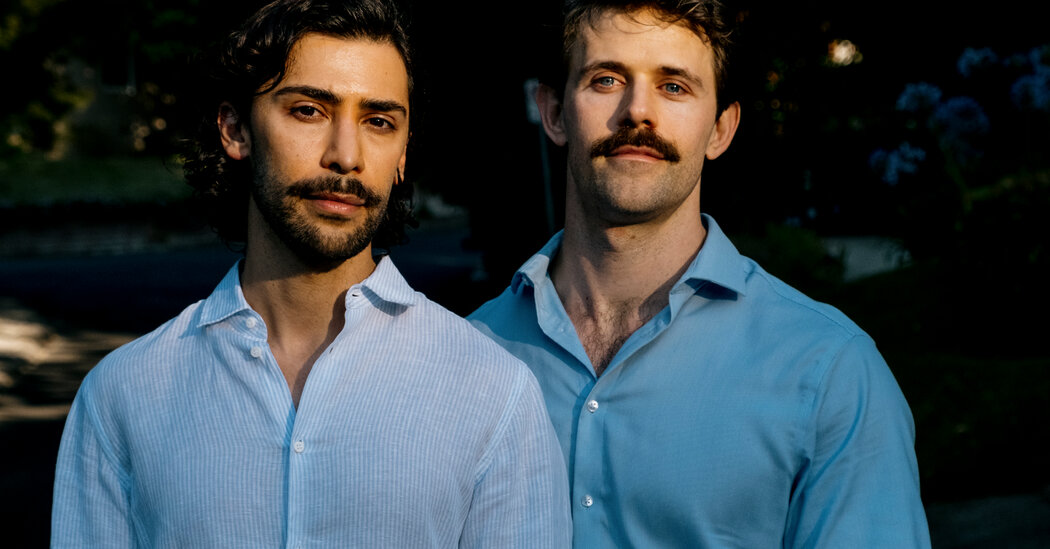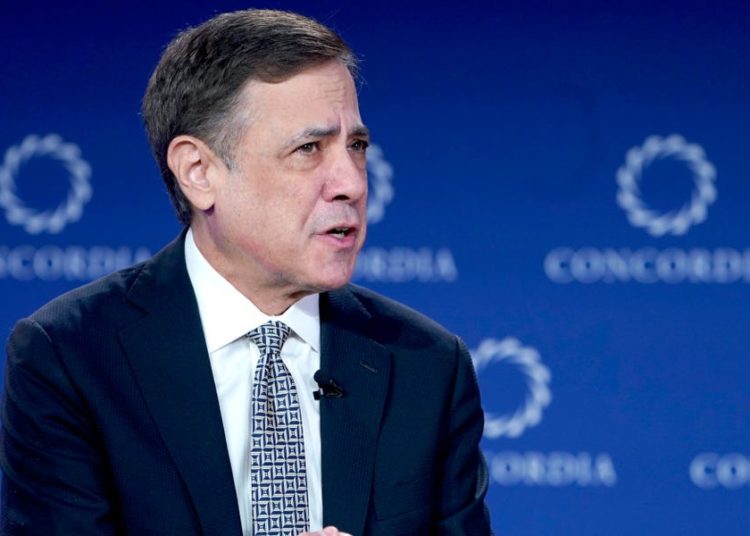Four years ago, fresh out of law school, Blessing Akinsilo was excited about her first real date in years. She had drinks with her match at a bar in Los Angeles, and the conversation felt easy. Things were going well — until he asked what she did for work.
They started guessing each other’s salary. He was an aspiring actor juggling part-time gigs. She was working in entertainment law. When her date assumed she was making more money than he was, she laughed and admitted that she had six figures of student loan debt.
His face twisted in surprise. Ten minutes later, they were splitting the check and saying awkward goodbyes. She never heard from him again.
Months later, Ms. Akinsilo and a man she had matched with on the dating app Hinge were messaging and joking about student loans. She figured it was safe to tell him how much she owed on her loan, thinking he would relate. But when he learned that her level of debt dwarfed his — he owed a quarter of what she did — the messages dried up fast.
They never made it to a first date.
“I wish I could go back in time and tell myself, ‘Don’t bring up these student loans and other things,’” said Ms. Akinsilo, now 31 and still navigating the dating scene.
For generations, couples have danced around conversations involving money in the early stage of a relationship. Whether out of discomfort, fear of being judged or simply not knowing when or how to bring it up, many people avoid talking about how much they earn, how much they owe or how they like to spend their money. More Americans feel comfortable discussing politics or religion than conversing about their finances, according to a 2024 Bankrate report.
This reluctance is evident in pop culture. In the film “Materialists,” a romantic comedy written and directed by Celine Song that debuted in June, Dakota Johnson plays a matchmaker named Lucy who makes a point of learning about the finances of the men she meets and takes on as either clients or lovers. One of these prospects, a man named Harry who works in finance, played by Pedro Pascal, is taken aback when Lucy asks him what his salary is. He declines to give an exact figure.
Things have shifted in recent years. A 2023 survey by Northwestern Mutual found that more than 70 percent of Americans believed that a conversation about money should occur “well ahead of marriage or living together.” Many financial experts agree that such conversations should happen sooner rather than later.
Job insecurity and mass layoffs during the pandemic also pushed money to the center of everyday conversations. Economic pressure is leading many people to ask questions about finances earlier in their relationships, sometimes even on the first date, said Aja Evans, a financial therapist in New York City and the author of “Feel-Good Finance.”
“Two things can be a deal breaker for people in relationships: kids and money,” Ms. Evans said.
By the Third Date
Lori Powell did not hold back anything on her first date with Dave, who is now her husband. She laid out everything: divorced with two children, not a fan of sweaty outdoor activities, high heels over sneakers. She also said she was debt-free.
Dave Powell told her that he had three daughters, that he had a steady job running a nonprofit and that half his salary went to his ex-wife. But it wasn’t until things got serious between the couple that he revealed he had about $15,000 in credit card debt.
It was a shock, but not a deal breaker, Ms. Powell said. Before they married in 1997, she said, she sold a piece of property in Tampa, Fla., for about $40,000 and paid off the debt so they could start fresh.
Thirty years later, they are still together, living in Lakeland, Fla., and still working. Mr. Powell, 75, works in sales, and Ms. Powell, 66, runs what she calls a vintage market. They have a combined income of $200,000 a year. The couple credit their long-lasting marriage to the tough money conversations they had at the beginning.
“No secrets is imperative to a happy relationship,” Ms. Powell said. “You can have a private life, but not a secret life.”
Daphney Poyser, a matchmaker and relationship coach at Fern Connections, said she agreed with the Powells. She recommended asking questions about career goals, money and lifestyle habits by the third date, before things get too serious, so surprises do not pop up.
Getting on the Same Page
Alexandria Ang and Brandon Hill, both 25, didn’t waste time talking about money — once they actually had some. They began dating during their freshman year at Macalester College and landed jobs soon after graduating.
Mr. Hill, a part-time music teacher chasing his music dreams, and Ms. Ang, a social media manager, knew that Ms. Ang would have to carry a bigger financial load early on, because she made more money. But once they moved into a one-bedroom apartment in Minnesota’s Twin Cities, Mr. Hill wrestled with not being “the provider.”
“When we graduated college, reality hit us like a truck,” Ms. Ang said. “We were like, ‘Oh, my God, we can’t depend on dorm life and school anymore.’”
For over a year, Ms. Ang covered the rent while Mr. Hill paid for groceries and household basics. But tension built as old ideas about who should provide clashed with what worked for them in reality.
After some tough conversations, Mr. Hill shifted to a full-time manager-in-training role at a gym so he could contribute to bigger bills, and the couple started weekly budget meetings.
They now live in a two-bedroom townhouse and are engaged. They believe that once your relationship is exclusive, conversations about money also need to include discussing what feels fair, comfortable and sustainable for both partners.
Sharing Finances Before Sharing a Life
It took Kooshan Dunn and his husband, Aaron Dunn, two to three years before they started talking about money in their relationship. At the time, both were in creative fields — Kooshan as a fashion stylist and Aaron as an art gallery assistant — but Kooshan was ready for a career change and thinking about leaving Brooklyn.
He knew it was time for an honest conversation about their finances before taking the next step, if he wanted to continue the relationship.
“It was a breaking point,” Kooshan, now in his early 30s, said. “We were always working, living from invoice to invoice and gig to gig. ‘Is this really what we want?’”
Once they broke the silence, everything shifted. The couple changed careers, moved to San Francisco for Aaron’s corporate law job and later settled in Los Angeles, where Aaron works as an intellectual property lawyer and Kooshan holds a corporate tech role.
Now married for nearly a year, they share expenses like the mortgage and utilities through a joint account but keep separate accounts for personal spending, although both have access to those accounts. The couple believe that if they didn’t have that difficult money conversation, they wouldn’t be where they are now.
Reading Between the Lines
Kiana Brooks, a senior buyer at a luxury fashion brand who is in her late 20s, has no idea how much her girlfriend makes, and she said she was perfectly fine with that.
After nearly a year of dating long distance, racking up frequent-flier miles between New York and Los Angeles, the couple said they cared less about the numbers on their paychecks and more about whether their lifestyles clicked.
Ms. Brooks loves to travel. To celebrate their one-year anniversary, she and her girlfriend, Nia Gaines, are headed to Paris, the city where they made things official. They are splitting hotel costs, paid separately for their airfare and are paying alternately for meals.
The way they spend, the couple said, reveals more than any spreadsheet or bank statement could. Ms. Brooks thinks people should inquire more about someone’s lifestyle and daily habits than about their finances.
“We always say long distance works as long as you’re not broke,” Ms. Brooks said. “If she’s like, ‘I can’t come to see you,’ I don’t have to hear her say she can’t afford it. You can read between the lines.”
Kailyn Rhone is a Times business reporter and the 2025 David Carr fellow.
The post How Many Dates Should You Go On Before You Start Talking About Money? appeared first on New York Times.




